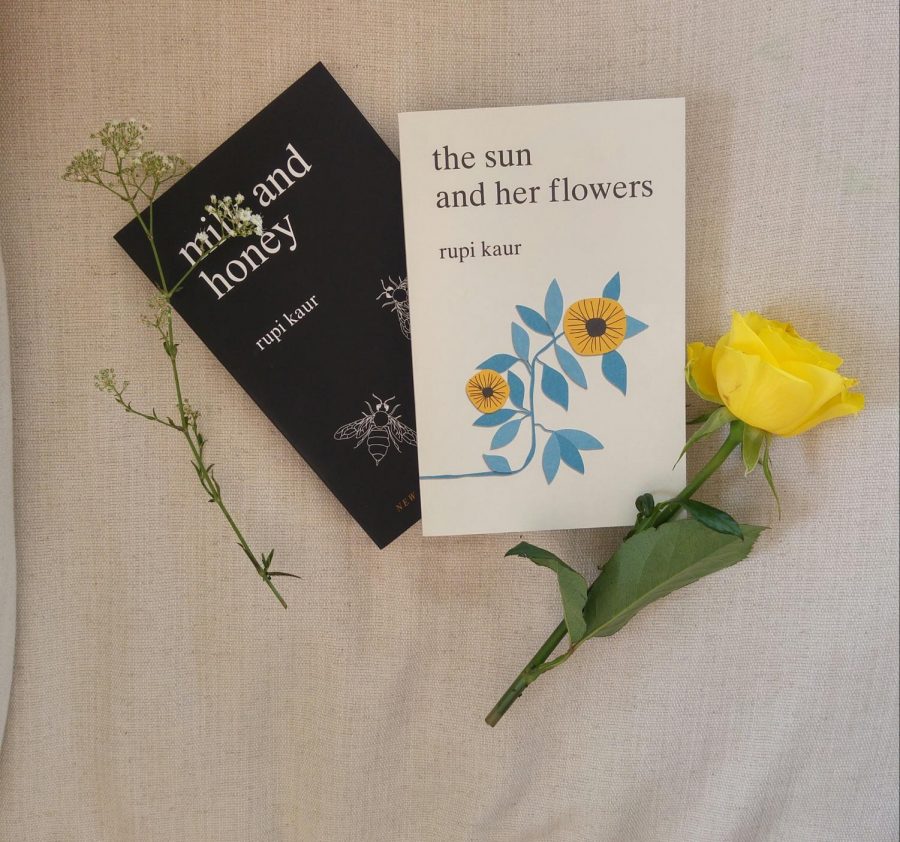Rupi Kaur’s New Poetry Collection Continues To Connect With Students
January 12, 2018
You wouldn’t think poetry is a common thing that students would be reading in 2018, but after Rupi Kaur’s The Sun and Her Flowers was published last October it’s sold 2.5 millions copies and debuted as a #1 global bestseller. Kaur is known for her #1 New York Times bestselling copy of Milk and Honey.
Much of the inspiration for Kaur’s pieces came from her hardships in life, including being born in India and migrating to Canada with her parents at age 4. Rupi Kaur is considered to be one of the best poets of her time and much of the world has realized that after her latest release, she’s inspired plenty of ordinary people by surprising us with such raw and inspiring material, it has a view that can touch any reader in an emotionally heartfelt way. And it also doesn’t hurt that she’s not afraid to write about controversial debates such as feminism, rape, along with immigration.
After finishing Milk and Honey I was desperate to read whatever Rupi Kaur had in store next, which happened to be The Sun and Her Flowers. Like Milk and Honey, it focuses on love, loss, and healing in such an extremely genuine way that no recent poets would be able to compare.
The Sun and Her Flowers is separated into five sections, wilting, falling, rooting, rising and blooming. In fact, my favorite section of the book is the chapter titled falling. Falling is a chapter where Rupi focuses on her journey of self acceptance. She talks about how her losses have changed how she looks at herself and shows that at this point she begins to focus on the negatives within her life.
One particular poem from “falling” that caught my eye compared to the others was:
“like the rainbow
after the rain
joy will reveal itself
after sorrow”
Many would argue that Kaur’s poems often have a stereotypical “Tumblr” type viewpoint. Although it seems not all of her poems are 100% unique and authentic, it doesn’t take away from her other genuine work. Kaur’s poems always have held a distinct power to them even with these potential cliche ideas.










